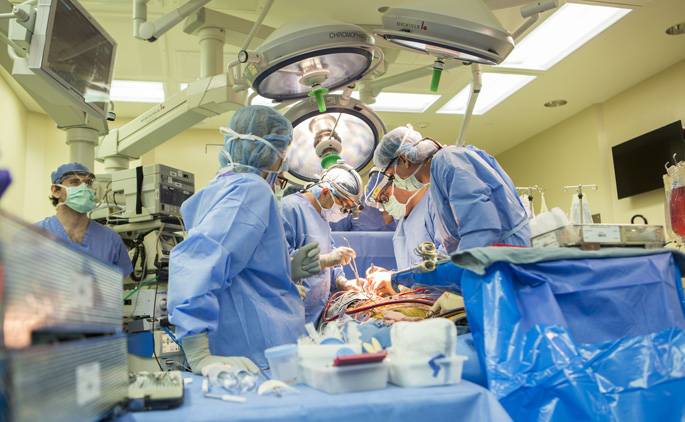
The pandemic paused many organ transplants in the U.S. But now, the life-saving procedures are restarting at a record clip, especially in Nashville, which has fared better than other parts of the country during the pandemic.
The pause was especially scary for Brittany Kirk of Millbrook, Ala. Just when everything shut down in March, she was at the top of the list to receive a new liver.
“Right when I thought I might be betting on that call that week, we got shut down,” she says. “My anxiety level was straight through the roof, because I didn’t know what that meant for me.”
Kirk is a 30-year-old wife and mother who had been given just months to live with her failing liver. Even major transplant centers like Vanderbilt University Medical Center, where she was waiting for a liver, stopped all but the most urgent cases.
In part, that’s because they had fewer organs to use. Traffic fatalities, which provide many of the organs, were way down. Fewer stroke victims have also been showing up at emergency rooms, further diminishing the number of donor candidates.
What’s more, Brian Shepard, CEO of the United Network for Organ Sharing, says procurement teams who finalize donations with families were having a tougher time.
“There’s probably some marginal effect of having some of those conversations virtually,” he says.
And when those organs became available, sometimes retrieving them became impractical or too dangerous to risk the the large teams involved in the typical transplant.
“They have to go hospital to hospital to hospital, to work with donors, to do the surgeries, to recover the organs,” he says.
Transplant centers also worried about exposing organ recipients, with compromised immune systems, to the coronavirus patients being treated elsewhere in the hospital.
It all led to a substantial slowdown, especially in the hard-hit Northeast, where some hospitals turned transplant suites into COVID-19 wards.
But Tennessee’s lower-than-expected COVID-19 numbers are one reason Vanderbilt has bounced back so quickly, says Dr. Seth Karp. Karp is VUMC’s chief of surgery and director of the transplant program, which is among the largest in the country.
“We have a census at Vanderbilt of between 20 and 30 COVID-19 patients. We got as high as the mid-30s, but we have more than 1,000 beds throughout the system,” Karp says. “Thirty is a lot of patients, but it’s something that we can handle.”
So in May, after Vanderbilt also had the capacity to test every patient in the hospital for COVID-19, Karp’s team got busy. And one of the first calls was to Brittany Kirk, at 3 a.m., she says.
They made the four-hour drive north, and her husband dropped her off at the hospital. Visitors are still not allowed.
“The scariest thing for me was that I’d have to go through it by myself,” Kirk says.
Karp stitched in her new liver without incident, and Kirk became part of Vanderbilt’s biggest month ever, with 73 transplants in May.
But the rebound, which is being felt in much of the country, is not necessarily permanent.
The Southeast is seeing new COVID cases surge, with one of the largest daily increases in Tennessee reported Sunday. If that results in an overwhelming number of patients at Vanderbilt, the transplants could be put on hold again.

